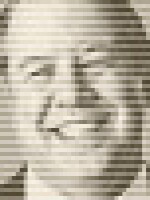Woody Allen: A Documentaryis the result, though not the culmination, of three very long and distinguished careers.
First, there's Robert Weide, the writer-director whose examination of Allen's life and art follows similar — and similarly impressive — documentaries on the Marx Brothers, Mort Sahl and Lenny Bruce.
Second, there's Susan Lacy, who created the PBS American Masters series 25 years ago, overseeing and nurturing brilliant programs on everyone from Buster Keaton and Jerome Robbins to John Lennon and Bob Dylan.
And finally, there's Woody Allen himself, who cooperated in the making of this documentary because of his respect for both Weide and American Masters.
In lesser hands, Woody Allen: A Documentary — which airs on PBS beginning Nov. 20 — might have the pondering weight of a career achievement salute, but not here. Part of it is timing: During the year and a half Weide followed Allen around, Allen happened to release Midnight in Paris, which may be his best comedy film in decades.
The other reason this documentary is so good is because it's so interested in process — in not only what Woody Allen has done, but why, how and even how he thinks about his own work when he's writing and filming it.
There's so much ground to cover when dealing with the life and works of Woody Allen, that even four hours don't seem like enough. I would have appreciated more coverage of his TV work, including his brilliant 1969 variety special with Billy Graham and Candice Bergen — yes, you heard me right — and the 1972 PBS comedy special that poked fun at Richard Nixon so successfully that it was never aired.
But even on the TV front, Woody Allen: A Documentaryis generous, and surprising. It includes not only his talk-show appearance with Dick Cavett, but an episode of a forgotten variety series called Hippodromefrom 1966, in which Allen actually climbs into a ring and boxes a kangaroo.

From the movies, there are outtakes, shots of Allen giving direction to his actors and stories of major rewrites, including the discarded first half of Sleeper. As regards his artistic process, we see the portable typewriter on which Woody Allen has clacked out every movie script, play and New Yorker piece since he began writing. We're also shown his key inspirations, from Bob Hope to Ingmar Bergman. And about his personal life, we learn a lot — though not everything.
The trickiest terrain is the part about Soon-Yi Previn, adopted daughter of Andre Previn and Mia Farrow. Farrow later became Allen's longtime girlfriend, until Allen shocked the world by confessing his love for, and eventually marrying, Soon-Yi. The documentary covers that scandal, and later prominently features Soon-Yi in footage of an overseas tour in which Allen plays clarinet with his jazz band. But it seems to race through that portion of Allen's life as quickly as possible, and understandably so.
That's not to say this character study avoids Allen's character, or what shaped it. Quite the contrary: Weide takes Allen back to his childhood home in Brooklyn, which triggers all sorts of recollections and realizations. And the film also includes one piece of home-movie footage that's almost uncomfortably revealing. Woody Allen, in 1986, stood behind the camera and interviewed his own mother, Nettie Konigsberg, to record her stories and memories. She tells Allen that he was very bright as a child and that she regrets being so strict.
"Because if I hadn't been that strict, you might have been a more, a not so impatient ... you might have been a — what should I say? Not 'better.' You're a good person. But maybe softer, maybe warmer," she says. Yikes.
You hear from plenty of other people in Woody Allen: A Documentary -- Diane Keaton, Louise Lasser, Mariel Hemingway, Scarlett Johansson, Martin Scorsese, Dick Cavett, Sean Penn, Larry David and so many more.
But the film clips, more than anything, steal this show. The bank robbery scene from Take the Money and Run.The translation scene from Bananas.The ending, and the beautiful Gershwin music, from Manhattan .The steps-through-the-screen scene from The Purple Rose of Cairo.And so many, many scenes from Annie Hall.
Part 1 of this American Mastersdocumentary takes us through Manhattanand Stardust Memories,and Part 2 covers the rest, up to and including the most recent, most delightful Midnight in Paris.It's a smart, sometimes serious study of a smart, sometimes serious filmmaker, and it rivals HBO's recent two-part George Harrison documentary as the best TV biography of the season. Like that one, it deserves to be seen, recorded and added to your personal video library. It's that good, and holds up that well to repeated viewings.
David Bianculli is founder and editor of TVWorthWatching.com. He teaches TV and film history at Rowan University in New Jersey.
Copyright 2020 NPR. To see more, visit https://www.npr.org. 9(MDA3NTY5MTc2MDEzMDY5NDU2MjQ3NDZhOA001))



